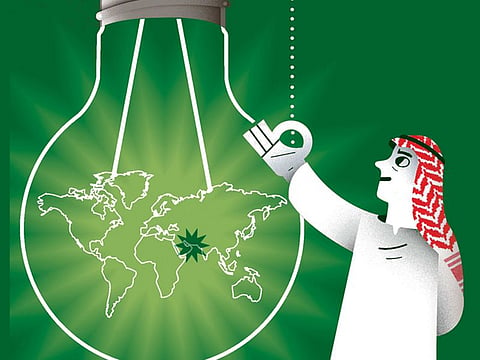From power to 21 homes and water to 49, incredible rise of Dubai’s DEWA in serving millions now
Discover DEWA’s growth milestones as leader in clean energy, technology, sustainability

Dubai: What began with just 21 electricity connections and water supply to 49 residents in Dubai has now grown into one of the world’s most advanced utility providers — the Dubai Electricity and Water Authority (DEWA).
As the exclusive provider of electricity and water in the emirate, DEWA has played a central role in Dubai’s remarkable transformation from a small desert settlement to a global hub of innovation, sustainability, and futuristic infrastructure.
DEWA’s story is deeply interwoven with Dubai’s own rise. From its inception, DEWA has not only met the essential needs of a fast-growing city but has also driven Dubai’s journey towards clean energy, digital transformation, and smart city excellence.
“DEWA is proud of its pivotal role in driving Dubai’s development. We strive to realise the Emirate’s ambitious goals set by the late Sheikh Rashid bin Saeed Al Maktoum, and carried forward under the wise leadership of His Highness Sheikh Mohammed bin Rashid Al Maktoum, Vice President and Prime Minister of the UAE and Ruler of Dubai,” said Saeed Mohammed Al Tayer, MD and CEO of DEWA.
Humble beginnings
The foundations of Dubai’s modern utilities were laid in the 1950s and 1960s under the leadership of the then Ruler the late Sheikh Rashid bin Saeed Al Maktoum. In 1959, he established the Dubai Electricity Company and the Dubai Water Department to serve around 7,000 households.
In 1961, the Dubai Electricity Company activated its first 21 electricity connections using four diesel generators, each producing 360 kilowatts. Demand quickly surged as Dubai’s population grew. By 1972, electricity demand had skyrocketed to 42 megawatts (MW), prompting the construction of larger and more efficient power stations, including the pivotal C Station and later the Jebel Ali-based D Station.
Similarly, the Dubai Water Department initially focused on tapping underground water reserves, leading to the discovery of drinkable groundwater. The city’s early water network relied on modest piping systems and pumps that by 1961 supplied water to just 49 residents. But as the city expanded, so did its thirst, leading to the development of desalination plants, beginning in 1979, attached to the electric power stations.
Formation of DEWA
On January 1, 1992, a royal decree by the late Sheikh Maktoum bin Rashid Al Maktoum merged the two entities into DEWA. Since then, the organisation has not only expanded its service capacity to meet the needs of Dubai’s 3.6 million residents (and 4.8 million daytime population), but it has also set international benchmarks in efficiency and innovation.
Today, DEWA’s total production capacity stands at 17,179MW of electricity and 495 million imperial gallons of desalinated water per day. The utility has consistently recorded among the lowest electricity customer minutes lost (CML) globally — only 0.94 minutes in 2024, well below the EU and US averages.
Powering clean energy future
A cornerstone of DEWA’s mission is clean energy. In line with the Dubai Clean Energy Strategy 2050 and the Dubai Net Zero Carbon Emissions Strategy 2050, DEWA aims to provide 100% of the city’s power from clean energy sources by mid-century.
Projects such as the Mohammed bin Rashid Al Maktoum Solar Park, the largest single-site solar park globally, underscore this commitment. Set to reach 7,260MW by 2030 with investments of over Dh50 billion, the park currently generates 3,460MW from solar and concentrated solar power, with an additional 1,800MW under development.
DEWA also leads regional innovation with the Green Hydrogen project, the first in the Middle East and North Africa to produce hydrogen using solar power. Capable of producing 20 kilograms of hydrogen per hour, the project supports Dubai’s shift to sustainable fuels and new energy technologies.
Pioneering infrastructure, innovation
In addition to renewable energy, DEWA is spearheading cutting-edge projects such as the Hydroelectric Power Plant in Hatta and the EV Green Charger initiative to support electric vehicles.
The authority has fully embraced the Fourth Industrial Revolution, deploying AI, smart grids, and digital tools to enhance efficiency and resilience. Its smart transformation includes innovations in water leakage detection, demand forecasting, and integrated management systems.
Public-Private Partnerships
DEWA has set a successful model of public-private partnership, attracting large-scale investments in energy and infrastructure. In April 2022, it was listed on the Dubai Financial Market, becoming the largest listed company with a market value of Dh124 billion. Its IPO saw nine billion shares oversubscribed by 37 times.
In the first nine months of 2024 alone, DEWA reported revenues of Dh23.5 billion, marking its strongest financial performance to date.
Sign up for the Daily Briefing
Get the latest news and updates straight to your inbox

